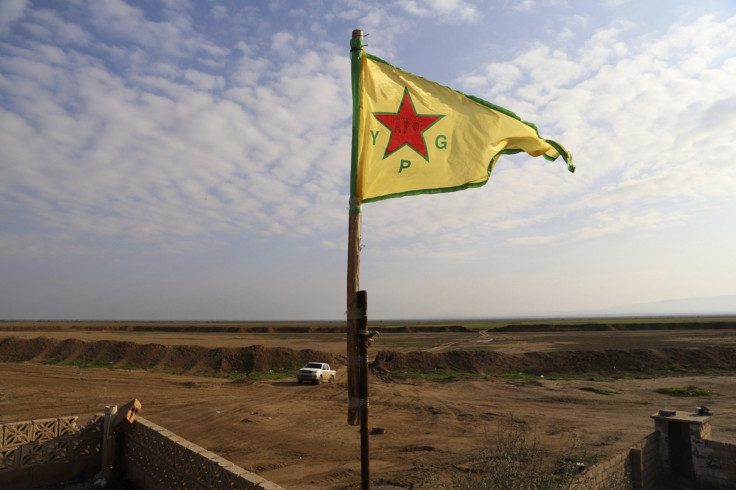Kurds Cracks Down On Yazidi Military Leaders Who Seek Help From Iran

The Kurdish Regional Government arrested a Yazidi militia leader on Monday on charges of seeking weapons from Iranian-backed Shiite forces, highlighting a rift among some of the forces allied to fight the Islamic State group in northern Iraq. Haider Shesho was arrested while visiting family on Monday, according to the Telegraph.
While the Kurdish autonomous government, the Yazidis and Iran are all united against the Islamic State group militants, they are divided on their attitude toward the U.S.-backed Baghdad government, preventing them from working together directly. The Kurds, who have been persecuted by the Iranian government, are wary of their ally's involvement with Tehran.
Militants from the Islamic State, also known as ISIS, overtook Mount Sinjar in Iraq last summer, threatening tens of thousands of people from the Yazidi minority who had fled there with mass murder, and killing thousands. Yazidi paramilitary units were coordinated through the Kurdish forces known as peshmerga, who are allied with the Iraqi government -- but during the Sinjar siege, the Yazidis' Kurdish protectors were nowhere to be found.
Fearing that Yazidis would be left unprotected again in the face of ISIS, which wants to wipe them out as heretics, Yazidi commander Qassem Shesho -- Haider’s uncle -- formed the Sinjar Defense Unit (HPS) so that Yazidis would no longer have to rely on others for protection against enemies. "We need a complete Yazidi army, with weapons, Hummers and training... Without these measures, people will not return," Qassim Shesho told the Kurdish Rudaw News Agency in early March. He said his people, sometimes called Yezidis, could not rely on Kurds or on the Iraqi government, which he alleged had helped ISIS. "We cannot trust Arabs anymore ... they helped Daesh [ISIS], killed Yezidis and took our women and children," he said.
Earlier this month, some Yazidis voiced their desire to have an independent military, something the Kurdish authorities will not allow. In its early stages HPS attracted some wealthy people from the Yazidi diaspora to come back and finance the fight, as well as a few dozen foreign fighters. The group received some weapons and reinforcements from the peshmerga, but it was not enough to continue fighting ISIS, and the Yazidis said they were forced to look for other sources.
One such alternative was reportedly the Iran-backed Popular Mobilization Units, a coalition of mostly Shiite militia fighters battling ISIS in Iraq and sometimes coordinating with the Iraqi army.
“People say the [Popular Mobilization Units] is like [ISIS], like the terrorists,” an HBS spokesman told the Telegraph, adding that the Kurdish government was questioning Haider Shesho about his involvement with the Shiite militias. “They want to ask Haider why he is going to these people to get money.”
Shiite militias number in the tens of thousands in Iraq, are largely funded by Iran and do not answer to the Iraqi government. They have also been accused of various sectarian-motivated crimes against Sunnis.
The Yazidis are a small group with roots in the ancient religion of Zoroastrianism who believe in a mystical interpretation of the Quran and, like the Kurds, are not Arabs. Historically, the minority had identified itself as a member of the Iraqi Kurdish community, but this changed when ISIS invaded Sinjar in August.
“When they’re protected by the Kurds and there’s a sense of loyalty, they’re going to closely identify with the Kurds,” David Phillips, director of Columbia University’s Program on Peace-building and Rights and a senior adviser to the U.S. State Department during the past three administrations, recently told International Business Times. He added that “because they felt abandoned by the peshmerga, they’re much less likely to identify themselves with the Iraqi Kurds.”
© Copyright IBTimes 2025. All rights reserved.






















